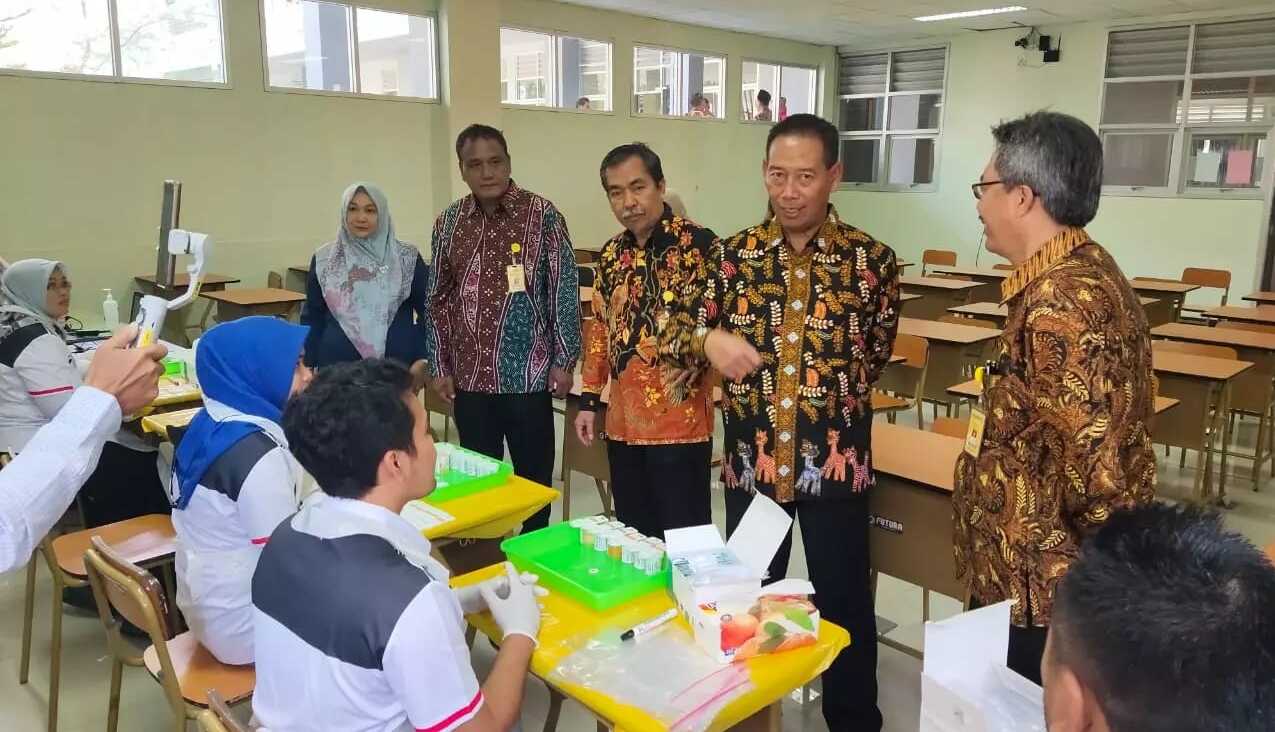Rencana Direktorat Jenderal Pendidikan Tinggi (Ditjen Dikti) mengembangkan kurikulum Lembaga Pendidikan Tenaga Kependidikan (LPTK) perlu disikapi bijak. Perubahan kurikulum diyakini berkonskuensi panjang sehingga memerlukan persiapan yang matang. Perubahan kurikulum akan berimplikasi pada berubahnya Profil Lulusan (PL) hingga Satuan Acara Perkuliahan (SAP).
Demikian antara lain simpulan Focus Group Discussion (FGD) yang diselenggarakan Universitas Negeri Semarang (Unnes) tentang Pengembangan Kurikulum LPTK, Jumat-Sabtu (26-27/7) di Star Hotel Semarang. Diskusi digagas untuk merespon rencana Pengembangan Kurikulum LPTK yang dilontarkan Dirjen Dikti beberapa waktu lalu.
“Rencana revitalisasi LPTK sudah mengemuka sejak lama di antara para rektor LPTK. Sebab, di Indonesia da 415 LPTK di Indonesia hanya 12 yang memenuhi standar. Revitalisasi menyangkut tiga aspek, yaitu kelembagaan, kurikulum, dan akreditasi,” terang Rektor Unnes Prof Dr Fathur Rokhman MHum di hadapan para pembantu dekan bidang akademik se-Unnes dan peserta diskusi lain.
Pedoman pengembangan Kurikulum LPTK sudah diterbitkan Dirjen Dikti. Namun, menurut Rektor, pedoman itu belum cukup kuat sebagai landasan hukum pengembangan kurikulum. Oleh karena itu, ia bersama rektor LPTK lainnya mengharapkan diterbitkan payung hukum berupa Permendikbud.
“Pedoman ini juga belum implementatif sehingga perlu saran dari kita semua. Kalau di Unnes inovasi (di bidang pendidikan) seperti ini seharusnya muncul dari Fakultas Ilmu Pendiidkan (FIP)” lanjut Rektor. Oleh karena itu, ia berharap peserta FGD dapat menecermati sekaligus merumsukan sejumlah saran kepada pemerintah agar pengembangan kurikulum LPTK bisa berjalan lebih baik.
Sementara itu, Pembantu Rektor Bidang Akademik Dr Agus Wahyudi berpendapat, salah satu poin terpenting pengembangan Kurikulum LPTK adalah tentang Kerangka Kualifikasi Nasional Indonesia (KKNI). KKNI memberikan pengakuan kualifikasi tidak hanya mengacu pada pendidikan formal, tetapi juga pelatihan yang didapat di luar pendidikan formal, pembelajaran mandiri, dan pengalaman kerja.
Setiap jenjang kualifikasi pada KKNI memiliki kesetaraan dengan capaian pembelajaran yang dihasilkan melalui pendidikan, pelatihan kerja atau pengalaman kerja. Jenjang 1-3 dikelompokkan dalam jabatan operator, jenjang 4-6 dalam jabatan teknisi atau analis, serta jenjang 7-9 jabatan ahli.
“Bagi perguruan tinggi, KKNI membawa konskuensi terhadap konsep dan penyelenggaraan pendidikan yang dilaksanakanya. Harus jelas, apakah itu pendidikan akademik atau pendidikan terapan,” katanya.

